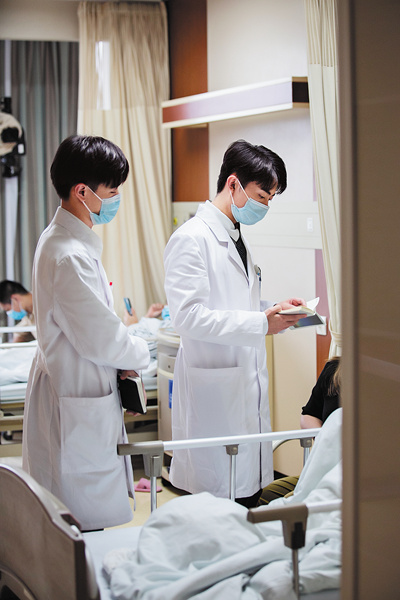Practice makes perfect


There is no script and more than 80 percent of the footage is captured by surveillance cameras as a way to avoid too much interference in operation of the hospital. The crew had to get consent from every patient appearing in the program.
While situations the students face in the program can easily resonate with audience members of their age, such as getting nervous before presentations or being criticized by tutors when failing to answer questions correctly or follow the right work procedure, warm and even amusing moments keep popping up.
For example, one student draws a cartoon and gives it as a gift to encourage a patient before operation. When a senior female patient says she has a headache, another student gives her a thorough body test, lasting more than an hour, to check if there is anything wrong with her neural system.
"Many people may laugh when watching this, but it was what we did," Tao says. "It is clinical experience that tells us which part of the check should be emphasized more, and which part can be done more quickly.
"What the patients need is beyond treatment," he says. "They also need humanity and care. Many details in this program just reflect a warm atmosphere. We expect the relationship between patients and doctors to be like that of friends."
"Medicine is a science," Ding Rongjing, a cardiologist from Peking University People's Hospital, shares her experience of watching the program. "It needs solid theoretical foundation. But you cannot just move what you've learned in textbooks into clinics.
"The program reminds me of my days when I almost knew nothing about clinics," she says. "The days were exciting, and full of hope, but I also lived with anxiety … It's a pleasure to see a new generation of students grow and get experience."




































